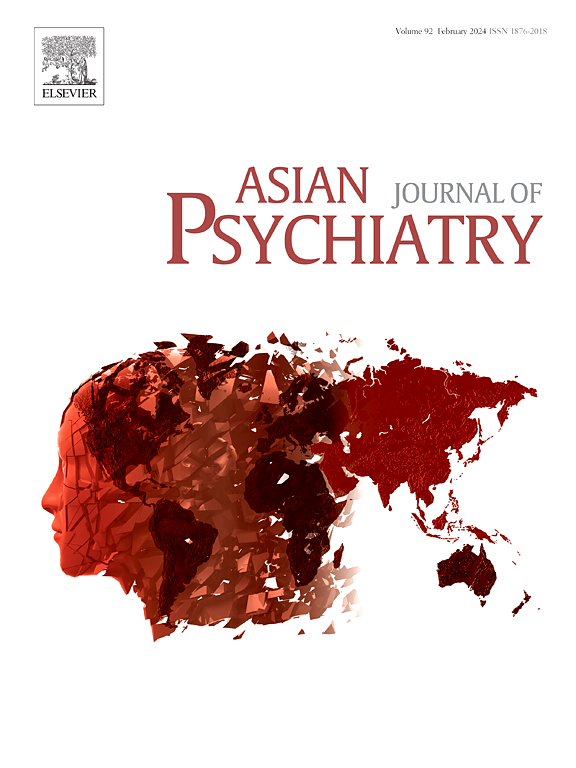Post-stroke cognitive impairment and dementia research in Southeast Asia: A scoping review
IF 3.8
4区 医学
Q1 PSYCHIATRY
引用次数: 0
Abstract
Introduction
The incidence of stroke remains high in Southeast Asia (SEA), according to the 2021 Global Burden of Disease study. Stroke can lead to cognitive impairments and dementia, highlighting the need for evidence-based management.
Aim
To chart the research on post-stroke cognitive impairment and dementia (PSCID) in SEA.
Methods
The review was conducted and reported using the PRISMA-ScR. A comprehensive search was performed across six databases: CINAHL, Scopus, Embase, PubMed, Web of Science, and APA PsycINFO. The last search date was September 15, 2024.
Results
9118 references were identified, and 103 articles (from 78 studies) published between 1992 and 2024 were included. Singapore contributed 42 articles, followed by Indonesia with 28, Malaysia with 17 and Thailand with 15. 35 articles each were from cohort and cross-sectional studies, and 13 were case-control design articles. In Indonesia, the prevalence of post-stroke cognitive impairment (PSCI) ranged from 27.6 % to 81.2 %. In Malaysia, it was between 21.6 % and 76 %; in Singapore, it varied from 12 % to 57.2 %; and in Thailand, between 50.3 % and 55 %. The prevalence of post-troke dementia varied between 2.8 % and 48.4 % in the sources. The most risk factors associated with PSCID included increasing age and low levels of education. Mixed findings on the effectiveness of the limited management strategies for PSCI were reported. The region lacks research from low- and lower-middle-income countries (LLMICs). Moreover, thorough research on how PSCID affects survivors' quality of life (QoL) is deficient.
Conclusion
PSCID is common in SEA, requiring urgent interventions for improved QoL for survivors. More research focusing on low- and middle-income countries is needed.
求助全文
约1分钟内获得全文
求助全文
来源期刊

Asian journal of psychiatry
Medicine-Psychiatry and Mental Health
CiteScore
12.70
自引率
5.30%
发文量
297
审稿时长
35 days
期刊介绍:
The Asian Journal of Psychiatry serves as a comprehensive resource for psychiatrists, mental health clinicians, neurologists, physicians, mental health students, and policymakers. Its goal is to facilitate the exchange of research findings and clinical practices between Asia and the global community. The journal focuses on psychiatric research relevant to Asia, covering preclinical, clinical, service system, and policy development topics. It also highlights the socio-cultural diversity of the region in relation to mental health.
 求助内容:
求助内容: 应助结果提醒方式:
应助结果提醒方式:


